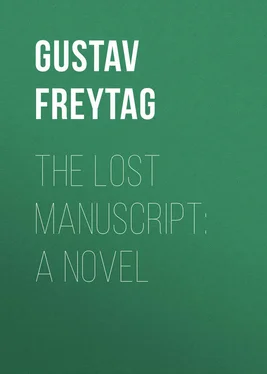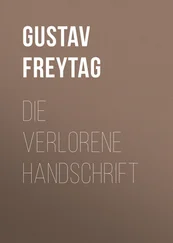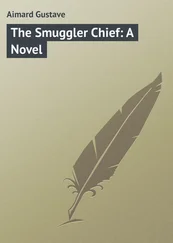Gustav Freytag - The Lost Manuscript - A Novel
Здесь есть возможность читать онлайн «Gustav Freytag - The Lost Manuscript - A Novel» — ознакомительный отрывок электронной книги совершенно бесплатно, а после прочтения отрывка купить полную версию. В некоторых случаях можно слушать аудио, скачать через торрент в формате fb2 и присутствует краткое содержание. Жанр: foreign_antique, foreign_prose, на английском языке. Описание произведения, (предисловие) а так же отзывы посетителей доступны на портале библиотеки ЛибКат.
- Название:The Lost Manuscript: A Novel
- Автор:
- Жанр:
- Год:неизвестен
- ISBN:нет данных
- Рейтинг книги:5 / 5. Голосов: 1
-
Избранное:Добавить в избранное
- Отзывы:
-
Ваша оценка:
- 100
- 1
- 2
- 3
- 4
- 5
The Lost Manuscript: A Novel: краткое содержание, описание и аннотация
Предлагаем к чтению аннотацию, описание, краткое содержание или предисловие (зависит от того, что написал сам автор книги «The Lost Manuscript: A Novel»). Если вы не нашли необходимую информацию о книге — напишите в комментариях, мы постараемся отыскать её.
The Lost Manuscript: A Novel — читать онлайн ознакомительный отрывок
Ниже представлен текст книги, разбитый по страницам. Система сохранения места последней прочитанной страницы, позволяет с удобством читать онлайн бесплатно книгу «The Lost Manuscript: A Novel», без необходимости каждый раз заново искать на чём Вы остановились. Поставьте закладку, и сможете в любой момент перейти на страницу, на которой закончили чтение.
Интервал:
Закладка:
The wood opens. Between the wayfarer and the city extends a broad stretch of lawn, and in the centre a large pond. Welcome, thou dale of verdure! Well-kept paths of gravel lead over the forest meadow; here and there a clump of waving undergrowth is seen, and beneath it a garden-bench. Here the well-to-do citizen sits of an afternoon, and resting his hands upon the bamboo-cane that he carries, looks proudly over upon the towers of his loved city.
Is the meadow, too, transformed to-day? A swelling expanse of water seems to lie before the wayfarer; it seethes and bubbles and plays about his feet, in endless masses of mist, as far as the eye can reach. What army of hobgoblins do lave their garments here! They flutter from trees, they course through the air, faint in outline, now dissolving, now intermingling. Higher the dim, dark figures soar. They float above the wayfarer's head. The gloomy mass of forest disappears. The very vault of heaven itself is lost in the misty darkness, and every visible outline sinks in the chaos of paling light and floating shapelessness. The solid earth still stays beneath the feet of our traveler, and yet he moves on, separated from all actual earthly forms, amid glimmering bodiless shadows. Here and there, the floating illusions again gather. Slowly the phantoms of air sweep through the veil that encompasses our wayfarer. Now the bent figure of a woman in prayer presses forward, broken with sorrow; now a troop in long, waving robes appears, as of Roman Senators, with emperor, halo-encircled, at their head. But halo and head dissolve, and the huge shadow glides, headless and ghostly, by.
Mist of a watery meadow, who hath so bewitched thee? Who else but that aged trickster of heaven, the moon, the mischief-maker moon.
Retreat, illusory shadows! The low-ground is passed. Lighted windows shine before the wayfarer. Two stately houses loom up at the city's outskirts. Here dwell two men-taxpayers, active workers. They wrap themselves, at night, in warm blankets, and not in thy watery tapestries, Moon, woven of misty drops that trickle from beard and hair. They have their whims and their virtues, and estimate thy value, O Moon, exactly in proportion to the gas saved by thy light.
A lamp, placed close to the window, shines from one of the upper rooms in the house on the left hand. Here lives Professor Felix Werner, a learned philologist, still a young man, who has already gained a reputation. He sits at his study table and examines old, faded manuscripts-an attractive looking man of medium size, with dark, curly hair falling over a massive bead; there is nothing paltry about him. Clear, honest eyes shine from under the dark eyebrows; the nose is slightly arched; the muscles of the mouth are strongly developed, as might be expected of the popular teacher of young students. Just now a soft smile spreads over it, and his cheeks redden either from his work or from inward emotion.
The Professor suddenly left his work and paced restlessly up and down the room. He then approached a window which looked out on the neighboring house, placed two large books on the window sill, laid a small one upon them, and thus produced a figure which resembled a Greek π, and which, from the light shining behind became visible to the eye in the house opposite. After he had arranged this signal, he hastened back to the table and again bent over his book.
The servant entered gently to remove the supper, which had been placed on a side table. Finding the food untouched, he looked with displeasure at the Professor, and for a long while remained standing behind the vacant chair. At length, assuming a military attitude, he said, "Professor, you have forgotten your supper."
"Clear the table, Gabriel," said the Professor.
Gabriel showed no disposition to move. "Professor, you should at least eat a bit of cold meat. Nothing can come of nothing," he added, kindly.
"It is not right that you should come in and disturb me."
Gabriel took the plate and carried it to his master. "Pray, Professor, take at least a few mouthfuls."
"Give it to me then," said he, and began to eat.
Gabriel made use of the time during which his master unavoidably paused in his intellectual occupation, to offer a respectful admonition. "My late Captain thought much of a good supper."
"But now you have changed into the civil service," answered the Professor, laughing.
"It is not right," continued Gabriel, pertinaciously, "that I should eat the roast that I bring for you."
"I hope you are now satisfied," answered the Professor, pushing the plate back to him.
Gabriel shrugged his shoulders. "You have at least done your best. The Doctor was not at home."
"So it appears. See to it that the front-door remains open."
Gabriel turned about and went away with the plate.
The scholar was again alone. The golden light of the lamp fell on his countenance and on the books which lay around him; the white pages rustled under his hand; and his features worked with strong excitement.
There was a knock at the door; the expected visitor entered.
"Good evening, Fritz," said the Professor to his visitor; "sit in my chair, and look here."
The guest, a man of slender form, with delicate features, and wearing spectacles, seated himself at the bidding of his friend, and seized a little book which lay in the middle of a number of open volumes of every age and size. With the eye of a connoisseur he examined the first cover-discolored parchment, upon which were written old church hymns with the accompanying music. He cast a searching glance on the inside of the binding, and inspected the strips of parchment by which the poorly-preserved back of the book was joined to the cover. He then examined the first page of the contents, on which, in faded characters, was written, "The Life of the Holy Hildegard." "The handwriting is that of a writer of the fifteenth century," he exclaimed, and looked inquiringly at his friend.
"It is not on that account that I show you the old book. Look further. The Life is followed by prayers, a number of recipes and household regulations, written in various hands, even before the time of Luther. I had bought this manuscript for you, thinking you might perhaps find material for your legends and popular superstitions. But on looking through it, I met with the following passage on one of the last pages, and I cannot yet part with the volume. It seems that the book has been used in a monastery by many generations of monks to note down memoranda, for on this page there is a catalogue of all the church treasures of the Monastery of Rossau. It was a poverty-stricken cloister; the inventory is either small or incomplete. It was made by an ignorant monk, and, as the writing testifies, about the year 1500. See, here are entered church-utensils and a few ecclesiastical vestments; and further on some theological manuscripts of the monastery, of no importance to us, but amongst them the following title: ' Das alt ungehür puoch von ussfahrt des swigers. '"
The Doctor examined the words with curiosity. "That sounds like the title of a tale of chivalry. And what do the words themselves mean! 'The old, immense book of the exit or departure of the swiger .' Does swiger here mean son-in-law or a tacit man?"
"Let us try to solve the riddle," continued the Professor, with sparkling eyes, pointing with his finger to the same page. "A later hand has added in Latin, 'This book is Latin, almost illegible; it begins with the words lacrimas et signa , and ends with the words-here concludes the history- actorum -thirtieth book.' Now guess."
The Doctor looked at the excited features of his friend. "Do not keep me in suspense. The first words sound very promising, but they are not a title; some pages in the beginning may be deficient."
Читать дальшеИнтервал:
Закладка:
Похожие книги на «The Lost Manuscript: A Novel»
Представляем Вашему вниманию похожие книги на «The Lost Manuscript: A Novel» списком для выбора. Мы отобрали схожую по названию и смыслу литературу в надежде предоставить читателям больше вариантов отыскать новые, интересные, ещё непрочитанные произведения.
Обсуждение, отзывы о книге «The Lost Manuscript: A Novel» и просто собственные мнения читателей. Оставьте ваши комментарии, напишите, что Вы думаете о произведении, его смысле или главных героях. Укажите что конкретно понравилось, а что нет, и почему Вы так считаете.












